简体中文
繁體中文
English
Pусский
日本語
ภาษาไทย
Tiếng Việt
Bahasa Indonesia
Español
हिन्दी
Filippiiniläinen
Français
Deutsch
Português
Türkçe
한국어
العربية
Juno Markets: A Closer Look at Its Licenses
Abstract:When selecting a broker, understanding its regulatory standing is an important part of assessing overall reliability. For traders seeking to protect their capital, ensuring that a platform operates under recognised and stringent oversight can make all the difference. Keep reading to learn more about Juno Markets and its licenses.
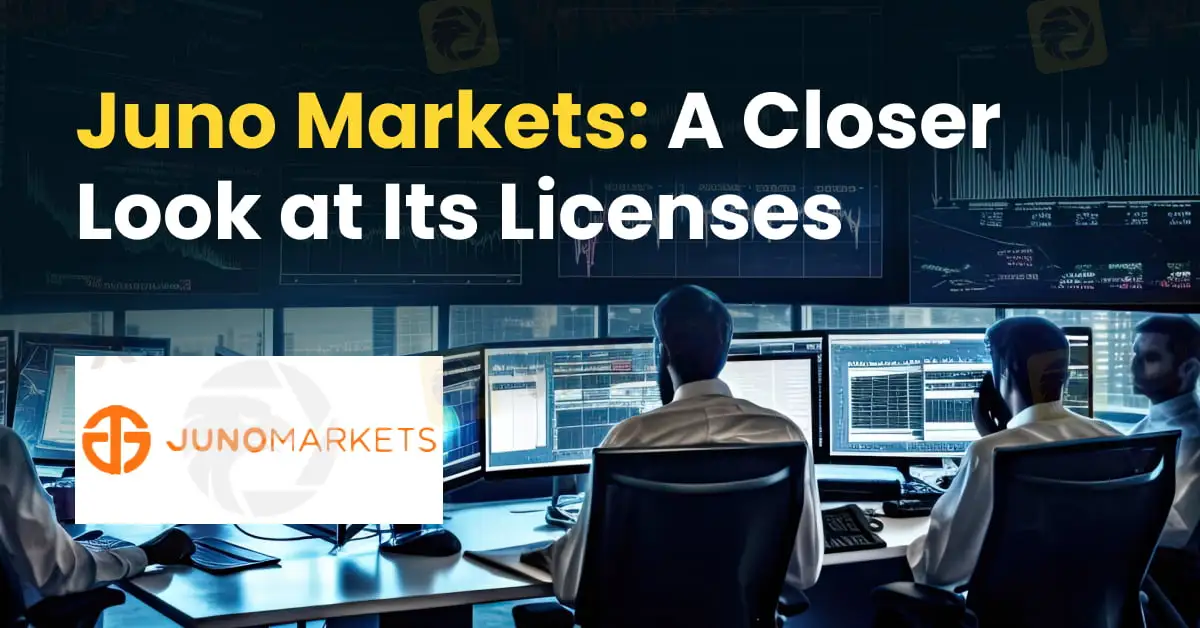
When choosing a broker, regulation is often the first line of defense for any trader. In the case of Juno Markets, what may appear at first to be a well-established trading company reveals a number of concerning facts upon closer inspection. Although the broker holds some regulatory credentials, several red flags regarding its licensing status and offshore presence should not be overlooked.
While it does hold an Institution Forex Licence (STP) from the Australian Securities and Investments Commission (ASIC) under licence number 540205, this specific authorisation is restricted to institutional business only. This means that the broker cannot legally open accounts for individual retail traders under this licence, limiting the direct consumer protection benefits that ASIC regulation is known for.
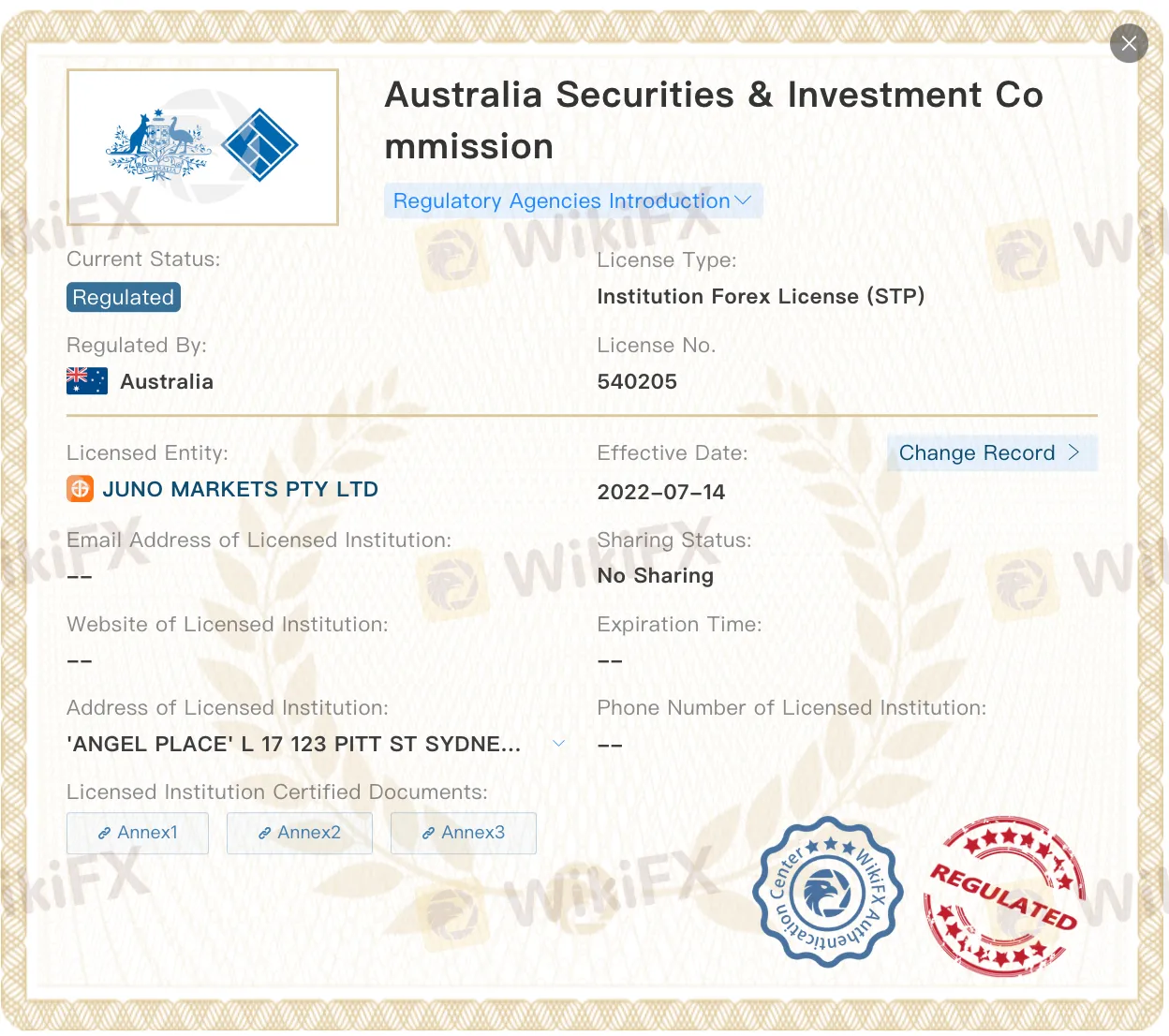
For retail accounts, Juno Markets possesses a licence from the Vanuatu Financial Services Commission (VFSC), number 40099. While this is a legal licence, the VFSC is an offshore regulator with lighter rules than ASIC or other top-tier authorities. Offshore regulation often has weaker investor protection, leaving traders with fewer options if disputes or problems arise.
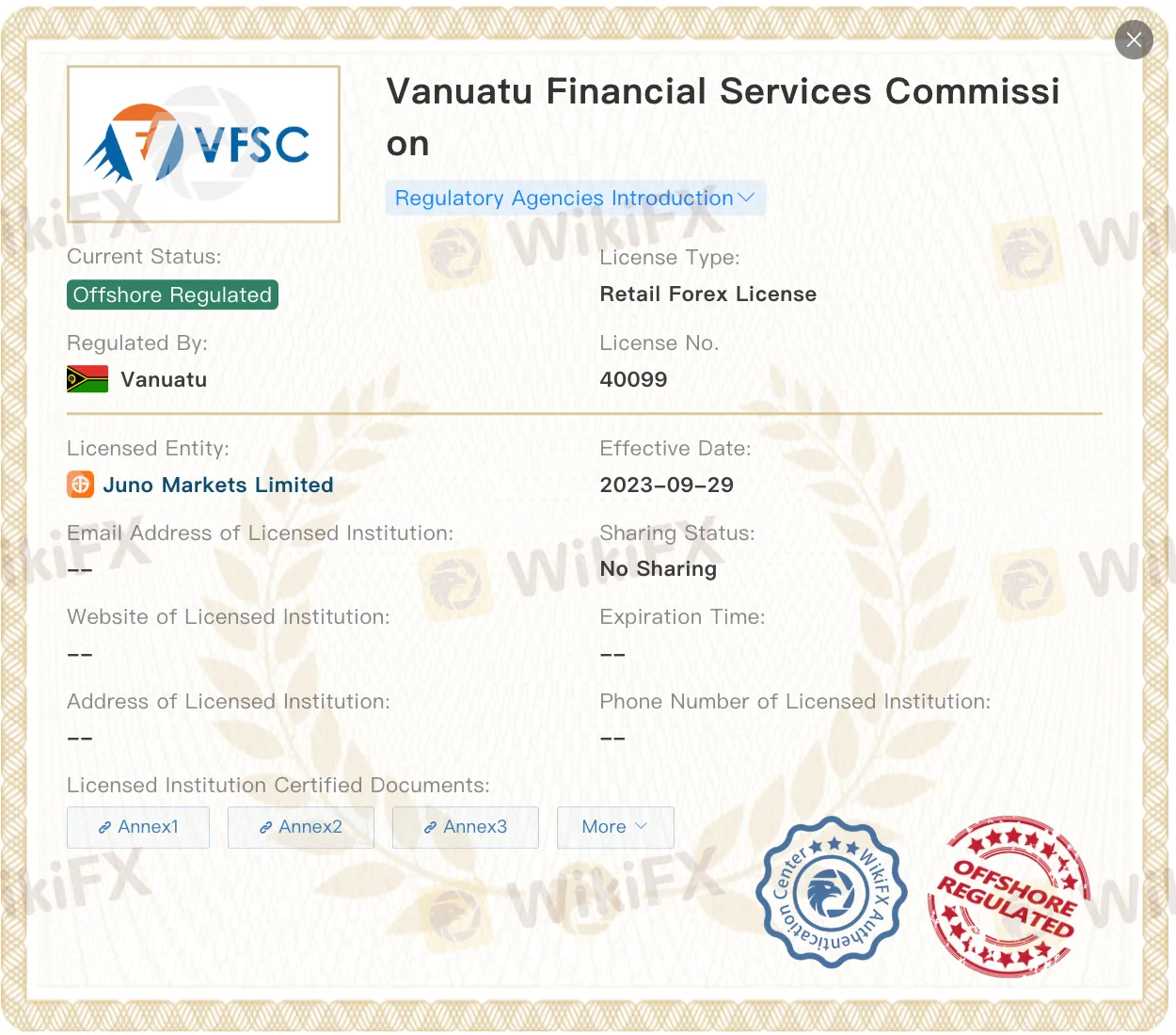
Further complicating the picture is the fact that Juno Markets has been publicly disclosed by the Securities Commission Malaysia, an indication that Malaysian authorities have flagged its activities. Such disclosures often serve as cautionary notices, advising investors to proceed carefully due to potential compliance or authorisation concerns.
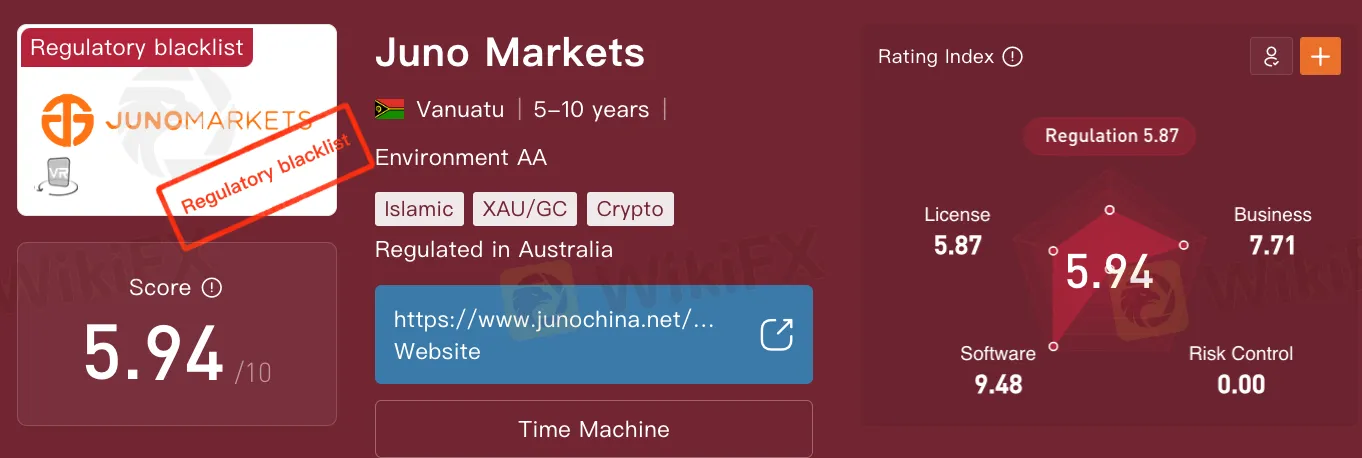
According to WikiFX, a platform that reviews brokers based on their regulatory background, platform operations, and user safety, Juno Markets scores just 5.94 out of 10. While this does not confirm that the broker is a scam, it certainly places it in a relatively riskier category that traders should approach with caution.

Disclaimer:
The views in this article only represent the author's personal views, and do not constitute investment advice on this platform. This platform does not guarantee the accuracy, completeness and timeliness of the information in the article, and will not be liable for any loss caused by the use of or reliance on the information in the article.
Read more

What Is Indices in Forex? A Beginner’s Guide to Trading Forex Indices
Understand what indices in forex are, how DXY works, key differences vs pairs, pros/cons, and where to trade CFDs—beginner-friendly, expert-backed guide.

Malaysian Finfluencers Could Face RM10 Million Fine or 10 Years in Prison!
A new regulatory measure by the Securities Commission Malaysia (SC) is set to change the country’s online trading and financial influencer landscape. Starting 1 November 2025, any trader or influencer caught promoting an unlicensed broker could face a fine of up to RM10 million, a prison sentence of up to 10 years, or both.
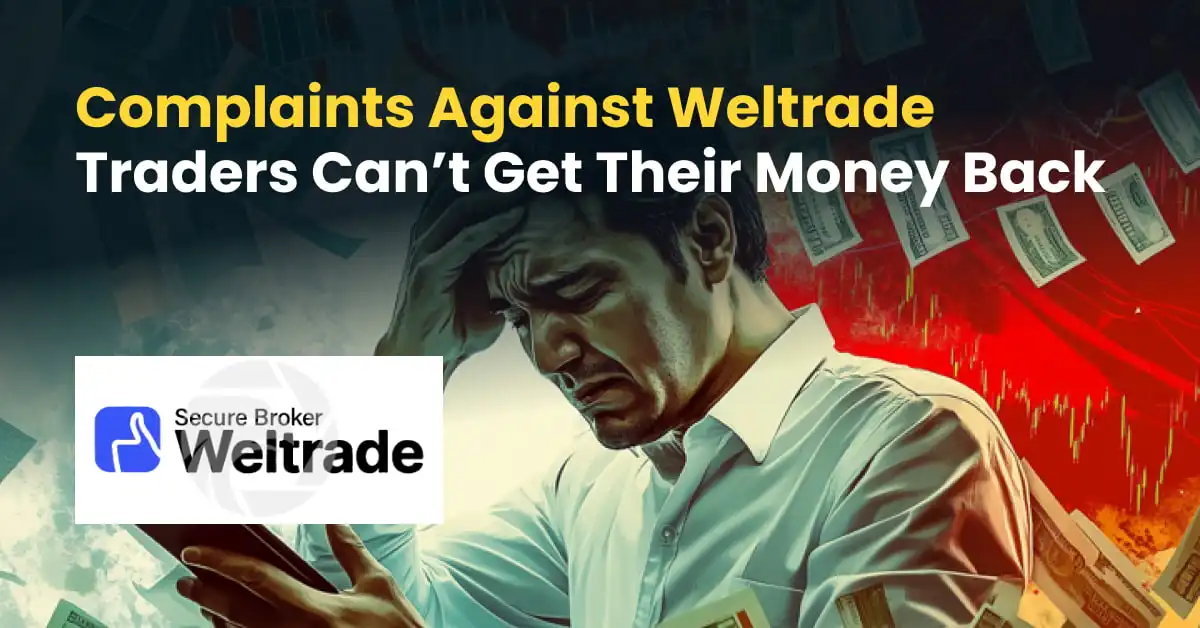
Complaints Against Weltrade | Traders Can’t Get Their Money Back
Opening a trading account and watching your capital grow can feel exciting and full of promise until the moment you realise you cannot get your money back. That’s when the dream turns into a nightmare. Recent complaints submitted to WikiFX reveal an unsettling pattern seen at Weltrade where deposits vanish, withdrawals stall for days or even months, and support channels lead nowhere.

Top 5 Cent Account Brokers for 2025: Best Choices for Beginners and Pros
Discover the top 5 cent account brokers for 2025 and learn how cent account trading works. Explore benefits, broker comparisons, and practical tips for beginners and pros to trade forex with low risk and minimal deposits.
WikiFX Broker
Latest News
Scam Alert: Know the Risky Side of InstaForex in India
Going to Invest in FXCL? Move Back to Avoid Scams & Losses
What Is Forex Trading Fee? A Beginner’s Guide
Understanding UAE’s Financial Market Regulation: SCA and DFSA
What Is Indices in Forex? A Beginner’s Guide to Trading Forex Indices
FBI Issues Urgent Warning on Crypto Recovery Scams
Robinhood Moves Toward MENA Expansion with Dubai DFSA License Application
How to Use Retracement in Trading
CySEC warns the public against 17 investment websites
IBKR Lite Singapore Debuts with Zero-Commission US Stock Trading
Currency Calculator


